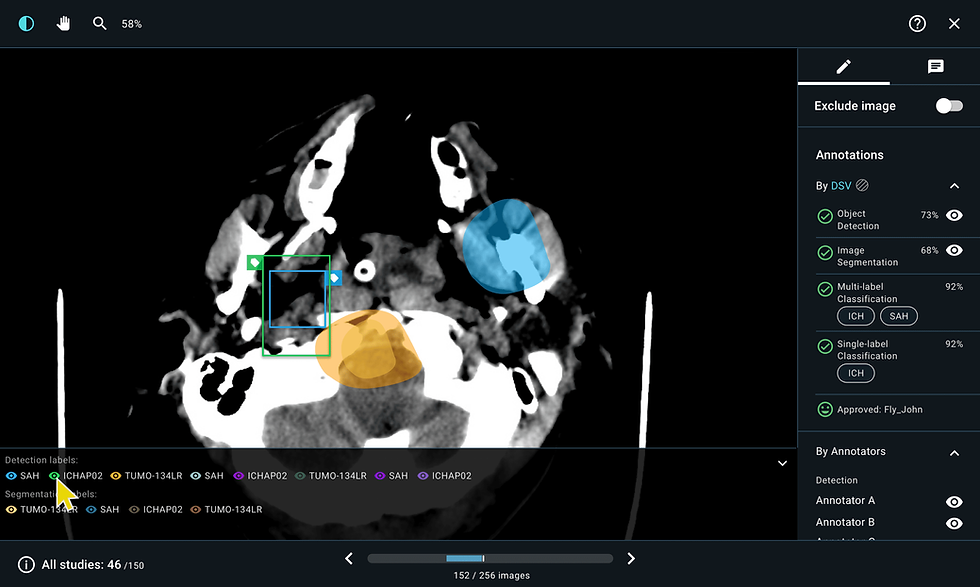Partnering with Shin Kong Hospital: Pneumothorax AI Model Significantly Enhancing Reporting Efficiency
- sylviakuan
- Jul 12, 2024
- 2 min read

Due to the varied symptoms of pneumothorax and the high workload of radiologists, it is challenging to quickly identify potential critical cases that need to be prioritized. This can lead to delays in treating pneumothorax cases and pose a risk to patient safety.
In order to improve the early diagnosis of pneumothorax and reduce the risk of delays or errors, Shin Kong Hospital organized a cross-departmental AI project team. Leveraging the DeepQ AIP platform, they developed a Pneumothorax AI model with a testing accuracy of 98%.
In the process of clinical deployment, we also designed a specific workflow for the system. After chest X-ray images are taken, they are automatically uploaded to the Picture Archiving and Communication System (PACS) and simultaneously forwarded to the Pneumothorax AI model for analysis. If the AI detects a suspected pneumothorax case, the system immediately sends a text message to notify the on-duty radiologic technologist, who then informs the radiologist to prioritize professional evaluation and issue an official report.
The pneumothorax AI model has shown outstanding performance, achieving a clinical application accuracy of 99%. An analysis comparing results from one year before and after implementing the AI model showed:
1. Overall reporting rate increased from 49.5% to 91.3% (1.8 times).
2. The detection rate within one hour increased from 29.7% to 85.3% (2.9 times).
3. The median detection time shortened from 7 hours to 12 minutes (35 times).
All three key performance indicators were significantly optimized.
The project leader at Shin Kong Hospital emphasized, "The DeepQ no-code AIP platform empowers medical teams to effortlessly develop and deploy AI models, thereby lowering technical barriers and Accelerating the integration of AI technology in healthcare.

